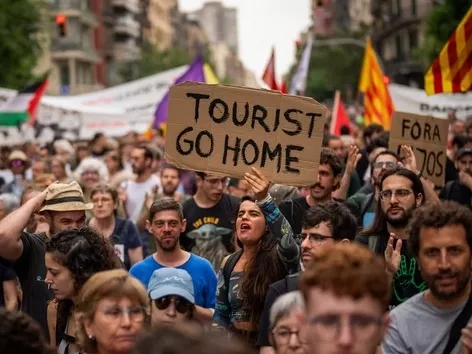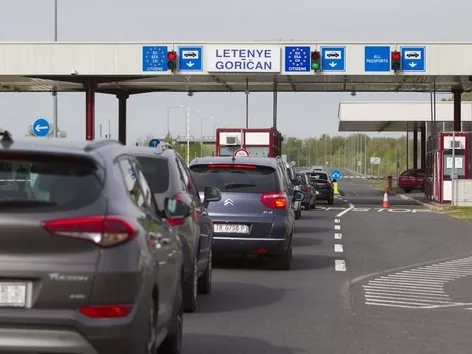Spain’s Crackdown on Airbnb: How New Rules Are Reshaping the Tourist Rental Market
Table of contents
- Over 65,000 Airbnb listings removed in Spain: a major purge
- Introduction of a 21% tax on rental income: a new financial reality for tourists in Spain
- How will the fluctuations in the tourist accommodation market in Spain affect tourists?
- Reasons for the strict regulation of the tourist real estate market in Spain?
- How can homeowners and tourists adapt to the new rules in Spain?

Spain has tightened controls on the tourist accommodation market to regulate mass short-term rentals through platforms like Airbnb. Find out about the removal of over 65,000 illegal listings, the new 21% tax on rentals, the reasons for the drastic changes, the impact on tourists and locals, and how homeowners and travelers can adapt to the new rules
Spain has tightened its grip on short-term rental platforms like Airbnb in an effort to regulate the country’s tourist property market.
A few weeks ago, the government ordered the removal of more than 65,000 listings that were deemed illegal, and now it is planning to introduce a 21% tax on rental income. The moves are having a significant impact on the prices and affordability of accommodation for tourists in the country’s popular cities.
We’ve put together everything we know so far about Spain’s fight against Airbnb and the reasons for this situation in this article.
Choose a reliable health insurance policy from Visit World to travel abroad safely.
Over 65,000 Airbnb listings removed in Spain: a major purge
Spanish authorities have found that many listings on Airbnb and other platforms lack the proper registration or license. By law, short-term rentals in the country must be strictly controlled to ensure safety, quality of service and prevent abuse.
In response, Spain’s consumer protection ministry said it had “called on” the Irish subsidiary of US company Airbnb to remove 65,935 listings for “violating the rules for advertising this type of tourist accommodation.”
The largest number of listings were removed in Barcelona, Madrid and Valencia.
Airbnb had previously tried to challenge Spanish authorities’ demands to remove thousands of listings, but a court in Madrid sided with the government. It ordered the company to immediately remove 5,800 listings that did not comply with the rules. In response, an Airbnb spokesman said the company would appeal and accused the ministry of “incorrect approach” because, in its opinion, it had no authority to control the listing of accommodation. He also added that the ministry was ignoring previous Supreme Court rulings that not all listings had to have a registration number.
The fight against illegal rentals is aimed at protecting residents from excessive tourism, which leads to rising housing prices and a deterioration in the quality of life.
Platforms, including Airbnb, are forced to comply with the authorities’ requirements and remove illegal offers. This has caused significant changes in the availability of apartments for tourists.
Introduction of a 21% tax on rental income: a new financial reality for tourists in Spain
In addition, in May 2025, the Spanish government announced the introduction of a tax on income from short-term rentals of 21%, which is the standard VAT rate for tourist services. It is worth noting that the tax amount will be twice the rate for hotel rooms.
This tax is intended to ensure fair competition and replenish the state budget, as well as solve the housing crisis in the country amid mass protests against excessive tourism.
Homeowners are now required to officially declare Airbnb income and pay taxes.
The tax pressure may prompt owners to either raise prices or switch to long-term rentals.
Recall! Last year, about a third of Spain’s 94 million visitors preferred to rent private homes or apartments instead of hotel rooms, which are currently subject to 10 percent VAT, while short-term rentals in mainland Spain are not subject to VAT.
How will the fluctuations in the tourist accommodation market in Spain affect tourists?
Such actions by the Spanish authorities may significantly affect tourists arriving in the country, including:
- The cost of accommodation in popular tourist regions of Spain will increase, especially in season.
- The number of short-term rentals may decrease due to their lower profitability.
- Preference will be given to official hotels and registered apartments.
Reasons for the strict regulation of the tourist real estate market in Spain?
Spain is facing a housing shortage for the local population due to mass tourism and the development of short-term rentals. The main challenges are:
- High real estate prices - owners prefer tourists due to higher profits, which increases rents for permanent residents.
- Social conflicts - noise, overloading of utilities, loss of communities in tourist areas.
- Insufficient tax control - a significant part of Airbnb income was not declared, which limited the country's budgetary capabilities.
Regulatory measures are aimed at balancing the interests of tourists, owners and locals.
How can homeowners and tourists adapt to the new rules in Spain?
For owners
- Obtain all necessary licenses and permits for renting out their property.
- Keep official records and pay taxes to avoid fines.
- Consider long-term rentals, which are becoming more attractive due to the changes.
For tourists
- Choose accommodation with official registration.
- Be prepared for rental prices to increase in popular cities.
- Use proven platforms and carefully read booking conditions.
Spain's fight against illegal short-term rentals is a complex but necessary process to protect local communities and stabilize the housing market. The introduction of strict rules and taxes will make the market more transparent, although it will increase the cost of renting for tourists. It is important for owners and guests of the country to be aware of the new realities in order to avoid problems and maintain a comfortable stay.
When planning a trip abroad, be sure to take care of a travel insurance policy that will protect you from unforeseen situations during your trip and compensate for unplanned expenses - for medical treatment, in case of lost luggage, flight cancellation, etc.
Buy a reliable travel insurance policy from trusted insurance agents on the Visit World portal!
Reminder! Spain is one of the most popular tourist destinations in Europe, attracting millions of travelers every year. We have already told you what entry rules apply to EU and visa-free countries, what documents are required to obtain a Schengen visa, current entry rules and much more useful information.
Photo – independent.co.uk
Products from Visit World for a comfortable trip:
Checklist for obtaining a visa and necessary documents in Spain;
Legal advice on immigration to Spain;
Travel insurance for foreigners in Spain;
Medical insurance all over the world.
We monitor the accuracy and relevance of our information, so if you notice any errors or inconsistencies, please contact our hotline.
Frequantly
asked questions
Why is Spain removing Airbnb listings?
What is the new 21% tax on Airbnb rentals in Spain?
How will these changes affect tourists in Spain?
Recommended articles
2 min
Travels
Trip to Egypt in 2025: current requirements, visa rules and tips for tourists
Planning a trip to Egypt in 2025? Learn about current passport requirements, visa options, customs regulations, medical advice, and safety and cultural tips for a comfortable and safe trip
26 May. 2025
More details2 min
Expats
European countries continue border controls at their internal borders. Find out which countries have new rules in place, how checks are carried out and what are the deadlines for additional controls
01 Dec. 2025
More details1 min
Travels
New reality for travelers: countries introduce mandatory arrival registration
Latvia, Nigeria and Thailand are introducing new requirements for tourists in 2025: mandatory arrival registration, notification of residence and digital cards. Find out what to do before your trip to avoid fines and entry refusals
24 May. 2025
More details2 min
Travels
Top 10 Most Unique Festivals in the World to Visit in 2025
Discover the TOP 10 most unique festivals in the world in 2025: from colorful Holi to the ice palaces of Harbin. Dates, tips, countries, interesting facts - everything you need for an unforgettable trip
25 May. 2025
More detailsAll materials and articles are owned by VisitWorld.Today and are protected by international intellectual property regulations. When using materials, approval from VisitWorld.Today is required.
